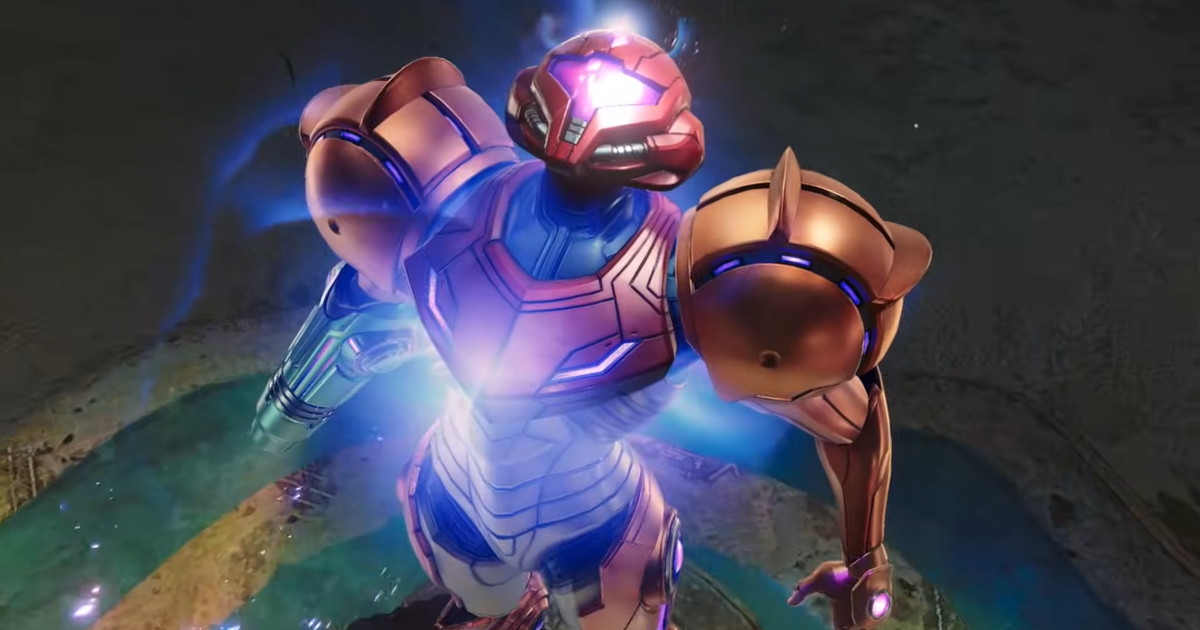Top Stories
Trump says he’s sending the National Guard into Memphis to ‘fix’ crime like D.C.

President Donald Trump said Friday that he’s planning to send federal law enforcement and the National Guard into Memphis, Tennessee, to lower crime in the city following his surge into Washington, D.C., over the last month.
“We’re going to Memphis. Memphis is deeply troubled,” Trump said in an interview on Fox News’ “Fox and Friends” in New York. “The mayor is happy. He’s a Democrat. And the governor of Tennessee, the governor is happy. We’re gonna fix that just like we did Washington.”
The president then raised the issue of lowering crime in Chicago, a frequent talking point of his, saying, “I would’ve preferred going to Chicago,” and criticizing Democratic officials in the city for opposing the move.
Trump said he decided on Memphis after speaking with someone he knows on the board of Fedex who brought up the crime rate in the city.
“We’re going to Memphis.” Trump said. “I’m just announcing that now, and we’ll straighten that out — National Guard and anybody else we need. And by the way, we’ll bring in the military, too, if we need it.”
FBI data shows that violent crimes have hovered at around 15,000 to 16,000 a year in Memphis in the last five years, marking an increase of several thousand from a decade ago.
The offices of Memphis Mayor Paul Young and Republican Gov. Bill Lee didn’t immediately respond to NBC News’ requests for comment.
Trump acknowledged that he has “more power” in D.C., whose officials share authority with the federal government, and said the administration has had a positive relationship with Democratic Mayor Muriel Bowser.
“We’ve had a great relationship,” Trump said. “Everybody’s happy, and the mayor was not in favor of it at first … and then she saw the results, and everyone’s going up and thanking her. We have no crime anymore.”
Trump’s emergency order authorizing a federal takeover of the D.C. police force for 30 days expired this week, and would have required Congress to extend it further under a law that grants the city some autonomy.
Bowser said federal law enforcement personnel would remain in the nation’s capital, but the Metropolitan Police Department would stop transporting people detained by U.S. Immigration and Customs Enforcement agents.
While the city would return to the “status quo,” she said, “federal police officers are going to be in the district … federal police officers can enhance the public safety mission of MPD.”
Bowser said last month that the increase of federal forces in the nation’s capital did lead to a drop in crime.
“We greatly appreciate the surge of officers that enhance what MPD has been able to do in this city,” she said. In the first 20 days of the federal takeover, there had been an 87% drop in carjackings compared with the same period last year. The data cited also showed a 45% decrease in violent crime and a 15% fall in crime overall in the district from the same period last year.
Top Stories
Operation World Cup: the murder plot at the heart of Brazil’s trial of the century | Brazil

The conspirators used codenames to conceal their identities as they prepared for their mission: to plunge Brazil into chaos by assassinating a celebrity supreme court judge called Alexandre de Moraes.
On an encrypted messaging group, one plotter used the alias Brazil, another Japan and a third Austria.
“Each of them had the name of a team,” Moraes said this week as he denounced the alleged plot to murder him as part of an attempt to destroy South America’s largest democracy.
The group of football-loving would-be assassins abandoned their task at the last minute.
“I’m close to the position. Are you going to cancel the game?” the person codenamed Austria asked their associates on their Signal group at just before 9pm on 15 December 2022, as he lurked near Moraes’s home in Brazil’s capital, Brasília.
“Abort,” replied “Germany”, according to a federal police report.
The cinematic plot, nicknamed Operation Copa 2022 (Operation World Cup 2022) and involving at least six special forces troops, was at the heart of this week’s historic trial of Brazil’s former president, Jair Bolsonaro. He was on Thursday sentenced to 27 years in prison for trying to stage a coup after he lost the 2022 election to his leftwing opponent, Luiz Inácio Lula da Silva, known as Lula.
“[He tried to] annihilate the essential pillars of the democratic rule-of-law state,” said Moraes as he accused Bolsonaro of being the leader of a sprawling conspiracy, which included plans to assassinate Lula and the vice-president-elect, Geraldo Alckmin, to stop them taking power on 1 January 2023.
Moraes said hitmen had planned to “neutralise” him using “extremely powerful weapons” capable of piercing his bullet-proof car; they also allegedly considered killing Lula during a public event with poison or drugs that would cause organ failure.
“I’m someone who should be really thankful to be alive,” Lula said last year after the alleged poison plot was revealed.
Bolsonaro has denied engineering a coup or being involved in an assassination plot, calling such claims “a little story”.
But Moraes said there was “ample evidence” indicating the far-right politician was aware of Operation World Cup 2022, which the judge said was part of a larger intrigue called Green and Yellow Dagger.
Police investigators said a copy of the blueprint for a “clandestine operation” with “terrorist hallmarks” was printed out in the presidential palace on 6 December 2022 by an army general called Mário Fernandes. At the time Gen Fernandes, who was arrested last year, was a senior official in Bolsonaro’s administration.
“This [plan] wasn’t printed out in a cave. It wasn’t printed out hidden away in a room of terrorists. It was printed out in the presidential palace. It was printed out in the seat of the Brazilian government … at the same moment that president Jair Messias Bolsonaro was there,” Moraes told the court on Tuesday as Bolsonaro’s trial reached its conclusion.
“The planning is so detailed that it even details the chances of success, what the collateral damage might be, what weaponry should be used,” added Moraes.
A copy of the Green and Yellow Dagger plan, obtained by federal police investigators, suggests plotters planned to use an arsenal that included assault rifles, a belt-fed machine gun and even a Swedish anti-tank weapon, used on the battlefield in Ukraine. “These are weapons of war commonly used by combat groups,” the police report says.
According to the investigators, the plan to assassinate Moraes was aborted only because a court session was delayed – and, more importantly, the commanders of the army and air force refused to endorse Bolsonaro’s coup plot.
Brazil has had more than a dozen coup attempts since it became a republic in 1889 but none, so far as is known, involved a plan to assassinate those being deposed.
The historian Lucas Pedretti said that did not necessarily mean such plots had not existed. Rather, the 2022 plot had come to light because, for the first time in history, the coup plotters had been investigated and put on trial.
Pedretti said the existence of the assassination plan was “shocking, but not so surprising”. The historian, who studies Brazil’s brutal 1964-85 military dictatorship, said the armed forces still promoted internally the idea that the bloody regime was a “necessary and legitimate response” to a supposed communist threat.
Quick Guide
Brazil’s dictatorship 1964-1985
Show
How did it begin?
Brazil’s leftist president, João Goulart, was toppled in a coup in April 1964. General Humberto Castelo Branco became leader, political parties were banned, and the country was plunged into 21 years of military rule.
The repression intensified under Castelo Branco’s hardline successor, Artur da Costa e Silva, who took power in 1967. He was responsible for a notorious decree called AI-5 that gave him wide ranging dictatorial powers and kicked off the so-called “anos de chumbo” (years of lead), a bleak period of tyranny and violence which would last until 1974.
What happened during the dictatorship?
Supporters of Brazil’s 1964-1985 military regime – including Jair Bolsonaro – credit it with bringing security and stability to the South American country and masterminding a decade-long economic “miracle”.
It also pushed ahead with several pharaonic infrastructure projects including the still unfinished Trans-Amazonian highway and the eight-mile bridge across Rio’s Guanabara bay.
But the regime, while less notoriously violent than those in Argentina and Chile, was also responsible for murdering or killing hundreds of its opponents and imprisoning thousands more. Among those jailed and tortured were Brazil’s first female president, Dilma Rousseff, then a leftwing rebel.
It was also a period of severe censorship. Some of Brazil’s best-loved musicians – including Gilberto Gil, Chico Buarque and Caetano Veloso – went into exile in Europe, writing songs about their enforced departures.
How did it end?
Political exiles began returning to Brazil in 1979 after an amnesty law was passed that began to pave the way for the return of democracy.
But the pro-democracy “Diretas Já” (Direct elections now!) movement only hit its stride in 1984 with a series of vast and historic street rallies in cities such as Rio de Janeiro, São Paulo and Belo Horizonte.
Civilian rule returned the following year and a new constitution was introduced in 1988. The following year Brazil held its first direct presidential election in nearly three decades.
“And this is particularly true in the case of the special forces,” he said, referring to the army group to which the men accused of plotting to kill Moraes, Lula and Alckmin belonged.
Police believe the men involved in the Moraes murder plot were special forces operatives known as the “kids pretos” or “black cap boys” because of the black caps they wore. Pedretti said the group, set up during the cold war, still maintained the same “enemy elimination mindset”.
“In Bolsonaro’s attempted coup, spearheaded by him and his generals, they simply put that logic and the expertise of the ‘kids pretos’ at the service of the coup-mongering political project,” Pedretti said.
Top Stories
Ego Nwodim To Leave After Seven Seasons

EXCLUSIVE: It turns out the cast shakeup at Saturday Night Live isn’t over. Ego Nwodim has decided to leave the NBC show after seven seasons.
Deadline understands that Nwodim made the decision after it was thought that the cast for Season 51 was set and ready to go ahead of its October 4 return.
“The hardest part of a great party is knowing when to say goodnight. But after seven unforgettable seasons, I have decided to leave SNL. I am immensely grateful to Lorne for the opportunity, to my castmates, the writers, and the crew for their brilliance, support, and friendship. Week after week on that stage taught me more than I could have ever imagined, and I will carry those memories, and that laughter, with me always,” she said.
RELATED: Shaking Tables & Stepping Up: How Ego Nwodim Broke Through On ‘SNL’ – Q&A
Nwodim will likely be in demand following her exit; she has increasingly been starring in series such as Peaock’s Poker Face and Mr. Throwback and Netflix film Little Brother, alongside John Cena, Eric André and Michelle Monaghan, in recent years. “Dream come true. I want my other dreams to come true. I want to be in films and I want to do more TV as well,” she told Deadline in 2023.
Nwodim was one of the most senior female cast members on the show and her departure comes after the news that Heidi Gardner, Emil Wakim, Michael Longfellow and Devon Walker were also not returning for Season 51.
Nwodim, a pre-med student who was part of UCB, joined the show in 2018, ahead of Season 44, the sole new face joining that year. She was promoted to repertory player ahead of Season 46.
It’s somewhat of a surprise given that Nwodim has broken out in recent years with a memorable performance as Miss Eggy earlier this year, which saw the audience yell expletives live on television after a call and response segment.
RELATED: Ego Nwodim Was “Sincerely Stunned” By ‘SNL’ Audience’s Cursing In Response To Miss Eggy
She also went viral with Lisa from Temecula, a lawyer whose predilection for overcooked meat has implications for the stability of her dining environment.
Nwodim, who has also played Dionne Warwick and Edith Puthie on the show, was non-committal when asked earlier this year whether she would return for Season 51.
“We like to keep things mysterious around here. That’s part of the allure of SNL, we don’t know what’s going to happen week to week, let alone in the fall, so who knows,” she told Deadline.
RELATED: Scarlett Johansson Says Colin Jost Will Return To ‘SNL’ As ‘Weekend Update’ Host In Season 51
On the other hand, the timing for her departure makes sense, coming off the back of the 50th anniversary of SNL, a major milestone, which she admitted was a “surreal experience”, given the number of SNL legends and A-list guest stars that appeared. Nwodim, who was part of the Domingo vow renewal sketch, said it was a “special honor” to be part of that club.
“At one point, there was an event honoring Lorne [Michaels] between the concert on February 14 and the special and Heidi [Gardner] said to me ‘I thought there were 500 people in this cast and I’m realizing there’s only a hundred-and-something of us ever to be in the cast’. What a special honor to get to be part of that club or family. The 50th felt really nostalgic and beautiful,” she said at a recent FYC event.
RELATED: There Were Signs That Please Don’t Destroy Was Coming To An End On ‘SNL’
Season 51 of SNL will now consist of 17 people after Michaels added Tommy Brennan, Jeremy Culhane, Kam Patterson and Veronika Slowikowska to the cast as well as Please Don’t Destroy’s Ben Marshall.
They join Michael Che, Mikey Day, Andrew Dismukes, Chloe Fineman, Marcello Hernandez, James Austin Johnson, Colin Jost, Sarah Sherman, Kenan Thompson, and Bowen Yang as well as featured players Ashley Padilla and Jane Wickline.
RELATED: Chloe Fineman Says ‘SNL’ Cast Shakeup Was “Pretty Wild”: “I Haven’t Fully Processed Anything”
Top Stories
Metroid Prime 4: Beyond finally gets release date, plus Samus on a motorbike

Metroid Prime 4: Beyond has finally received a release date from Nintendo, following months of speculation.
As revealed at today’s Nintendo Direct livestream, Metroid Prime 4 will release on 4th December across both Switch and Switch 2.
The announcement came with a fresh look at the game, including Samus on a motorbike. Yes, you read that correctly.
Back in June, an advertisement for the game was seen on the London Underground stating the game was “out now”, though this was swiftly debunked by Nintendo.
Still, while the game officially had a 2025 launch window, rumours of a delay intensified over the summer, though Nintendo remained committed to a release this year.
In July the game popped up on the Korean ratings board and then, a month later, was rated by the ESRB. As such, a proper release date has been hotly anticipated.
Metroid Prime 4 is the long-awaited latest entry in Nintendo’s sci-fi series, that once again follows bounty hunter Samus Aran in first-person. This time, though, she’s got psychic powers.
I went hands-on with Metroid Prime 4 at Nintendo’s Switch 2 launch event, but wasn’t completely convinced by its mouse controls.
This is a news-in-brief story. This is part of our vision to bring you all the big news as part of a daily live report.
Love Eurogamer? Make us a Preferred Source on Google and catch more of our coverage in your feeds.
-

 Business2 weeks ago
Business2 weeks agoThe Guardian view on Trump and the Fed: independence is no substitute for accountability | Editorial
-
Tools & Platforms1 month ago
Building Trust in Military AI Starts with Opening the Black Box – War on the Rocks
-

 Ethics & Policy2 months ago
Ethics & Policy2 months agoSDAIA Supports Saudi Arabia’s Leadership in Shaping Global AI Ethics, Policy, and Research – وكالة الأنباء السعودية
-

 Events & Conferences4 months ago
Events & Conferences4 months agoJourney to 1000 models: Scaling Instagram’s recommendation system
-

 Jobs & Careers2 months ago
Jobs & Careers2 months agoMumbai-based Perplexity Alternative Has 60k+ Users Without Funding
-

 Podcasts & Talks2 months ago
Podcasts & Talks2 months agoHappy 4th of July! 🎆 Made with Veo 3 in Gemini
-

 Education2 months ago
Education2 months agoMacron says UK and France have duty to tackle illegal migration ‘with humanity, solidarity and firmness’ – UK politics live | Politics
-

 Education2 months ago
Education2 months agoVEX Robotics launches AI-powered classroom robotics system
-

 Funding & Business2 months ago
Funding & Business2 months agoKayak and Expedia race to build AI travel agents that turn social posts into itineraries
-

 Podcasts & Talks2 months ago
Podcasts & Talks2 months agoOpenAI 🤝 @teamganassi

